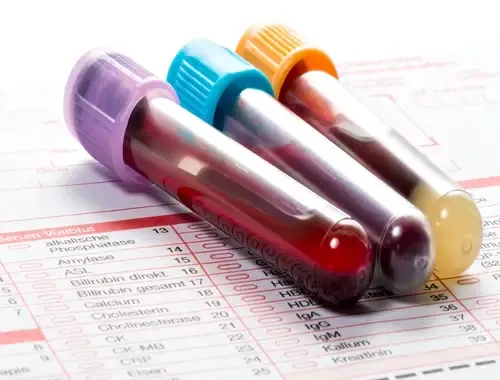Cancer is a complex disease that affects millions of people worldwide. Early detection and accurate diagnosis play a crucial role in the successful treatment of cancer. One method that has shown promise in screening and monitoring cancer is the blood test. In this article, we will explore the significance of cancer markers in blood, specifically focusing on the best blood test for cancer. By understanding the role of cancer markers and the potential of this test, individuals can take proactive steps towards their health.
What are Cancer Markers?
Cancer markers, also known as tumor markers, are substances produced by cancer cells or by the body in response to cancer. These markers can be detected in the blood, urine, or tissues of individuals with cancer. While not all cancers have specific markers, certain types of cancer do exhibit elevated levels of specific markers in the bloodstream.
Importance of Blood Tests for Cancer Detection
Blood tests for cancer detection offer a non-invasive and relatively simple method of screening and monitoring cancer. These tests can provide valuable information about the presence of cancer cells, the severity of the disease, and the effectiveness of treatment. One such blood test that has shown promise is the lactate dehydrogenase isoenzyme test (LDH test).
Understanding the LDH Test
The LDH test is a blood test that measures the levels of lactate dehydrogenase, an enzyme involved in generating energy for cancerous cells. When cancer cells die or rupture, this enzyme leaks into the bloodstream. By measuring the levels of LDH, medical professionals can gain insights into the presence and severity of cell tissue damage.
Interpreting LDH Test Results
While the LDH test doesn't provide information about the specific type of cancer, it can indicate the presence of cell tissue damage. The severity of the damage can also be assessed based on the LDH levels. Normal LDH levels for adults typically range between 140 and 280 units per liter.
Potential Applications of the LDH Test
The LDH test can be helpful in various scenarios. For instance, it can be used to monitor the progress of cancer treatment over time. Additionally, it can aid in identifying the affected organ or area of the body by correlating specific LDH levels with different parts of the body.
Limitations and Considerations
While the LDH test is a valuable tool, it does have limitations. It cannot pinpoint the exact type of cancer or the specific nature of the damage. Therefore, it is important to complement the LDH test with other diagnostic procedures, such as imaging scans and biopsies, for a comprehensive assessment.
Factors Affecting LDH Levels
Several factors can influence LDH levels in the blood. It is essential to consider these factors to ensure accurate interpretation of the test results.
Exercise and LDH Levels
Intense or excessive exercise can temporarily elevate LDH levels. Athletes, especially Olympic athletes, may experience higher LDH levels due to the physical stress placed on their bodies. Coaches may utilize the LDH test to monitor the extent of damage and determine if an athlete is overtraining.
Vitamin C and LDH Levels
Consuming high doses of vitamin C can reduce LDH levels, potentially providing a false representation of the actual tissue damage. It is crucial to inform healthcare professionals about any vitamin C supplements or high-dose regimens before undergoing an LDH test.
Medications and LDH Levels
Certain medications, such as aspirin, narcotics, and alcohol, can raise LDH levels in the blood, leading to inaccurate interpretations. Individuals should disclose their medication history to healthcare providers to ensure reliable test results.
Conclusion
Blood tests for cancer, particularly the LDH test, offer a valuable approach to screen and monitor cancer. While the LDH test does not provide specific information about the type of cancer, it can indicate the presence of cell tissue damage and help monitor treatment progress. However, it is essential to consider other diagnostic procedures and factors that may affect LDH levels for accurate interpretation. By understanding the significance of cancer markers in blood and the potential of the LDH test, individuals can take proactive steps towards early detection and effective management of cancer.
"Early detection is key in the battle against cancer, and blood tests like the LDH test provide a valuable tool for screening and monitoring the disease.
Additional Information: It's important to note that the LDH test is just one of many blood tests available for cancer detection. Other tests, such as the complete blood count (CBC), CEA test, and CA-125 test, may also be used depending on the specific cancer suspected. Consulting with a healthcare professional is crucial to determine the most appropriate tests for individual circumstances.
Disclaimer: This article is for informational purposes only and should not be considered medical advice. Consult with a healthcare professional for personalized guidance regarding cancer screening and diagnosis.

